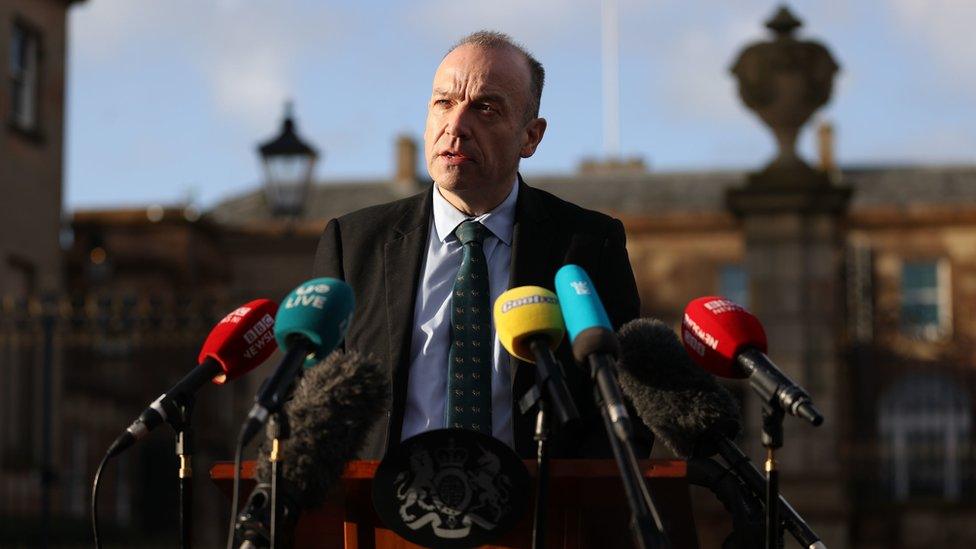Public sector strike: Civil disobedience call 'not endorsed by all unions'
- Published
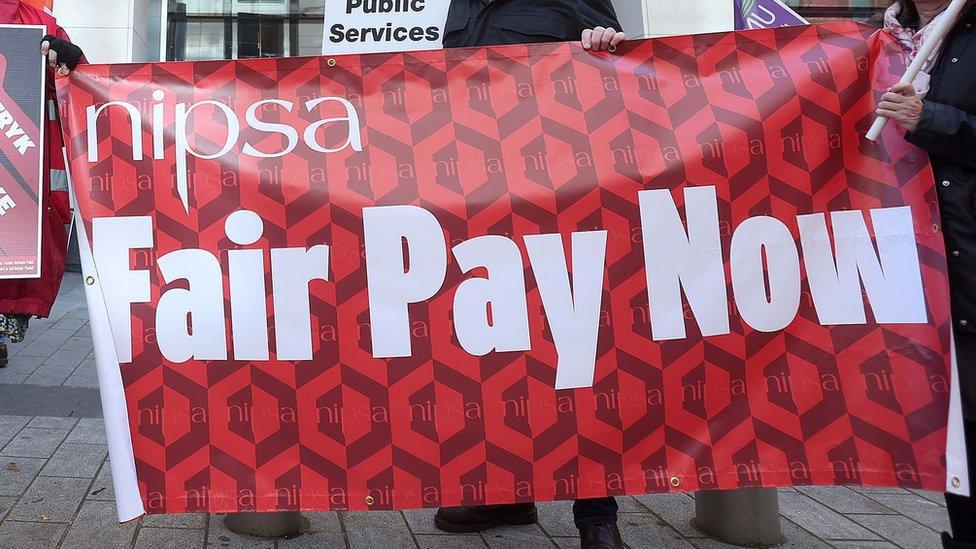
A leading member of trade union Nipsa had said that workers could look at civil disobedience if the pay disputes continue
A call for civil disobedience if public sector pay disputes continue beyond Thursday's major strike is not currently endorsed by all trade unions, a union leader has said.
Gerry Murphy of the Irish Congress of Trade Unions (ICTU) told BBC News NI's Sunday Politics that it will evaluate next steps after the strike.
Thousands of public service workers are set to walk out on Thursday over pay.
Unions have said it could be Northern Ireland's biggest ever strike.
However, Mr Murphy, the assistant general secretary of ICTU, said that unions will look at whether to escalate its action after Thursday.
It comes after a trade union leader told the Belfast Telegraph, external that civil disobedience was a possible next step if the pay dispute continues.
Patrick Mulholland, the deputy general secretary of Nipsa, said if people have to block a road or occupy a building, then that is what they should do.
"We are faced with a choice - either people die because our health service is not providing a service, or we organise civil disobedience and strikes to push back against them," he said.
When asked about those comments, Mr Murphy said ICTU represented 26 unions across Northern Ireland of which NIPSA is one.
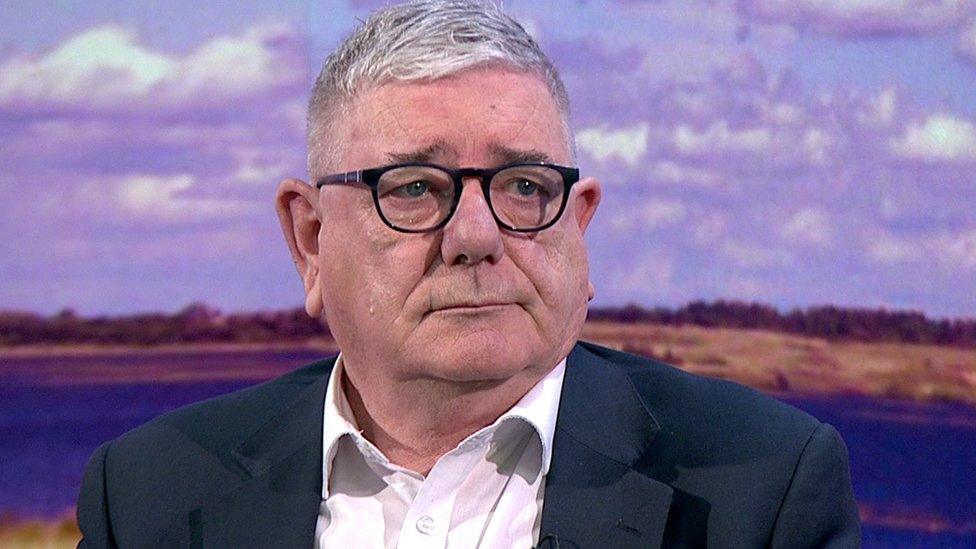
ICTU's assistant general secretary Gerry Murphy said Patrick Mulholland was "articulating the genuine view of his membership"
"They're entitled to their view, their call for civil disobedience is a matter for them.
"What will happen with ICTU is going forward, after Thursday, we will sit down and evaluate where we are then and collectively reach a decision on how we proceed."
He added that ICTU was not endorsing NIPSA's view "at the moment", adding that he believed Mr Mulholland was "articulating the genuine views of his membership, and the concerns and frustration which is rising across the trade union movement".
Why are workers striking in Northern Ireland?
Tens of thousands of workers, including teachers, healthcare workers, civil servants and bus and train drivers, will hold a mass walk out on Thursday over pay.
It is the latest in a series of strikes taken by workers in the long-running dispute.
Some £584m to address public sector pay issues has been offered by the government as part of a financial package of more than £3.3bn for the return of a Northern Ireland Executive.
But a pre-Christmas deal to restore Stormont was ruled out by the Democratic Unionist Party (DUP).
The party has been boycotting devolved government at Stormont since 2022, in protest against post-Brexit trade arrangements.
Unions have repeatedly blamed Secretary of State Chris Heaton-Harris and the government for not releasing funds to end the dispute.
However, the Northern Ireland Office, which is led by Mr Heaton-Harris, has said he has no authority to negotiate public sector pay, while Prime Minister Rishi Sunak has said that the disputes could be resolved "rapidly" if devolved government was restored.
'Release the money now'
Mr Murphy told Sunday Politics that local politicians are "irrelevant as far as the trade union movement is concerned".
He said the unions were pointing at Mr Heaton-Harris because "he's the man who has the power" and who "holds the purse strings".
"He said it (the money) is available, he should release it now and put it in the hands of civil servants and let the negotiations commence with the representatives of the workers across our public services."
Thursday's strike comes during a busy week of political manoeuvring in Northern Ireland.
The secretary of state will hold one-to-one talks with Northern Ireland's five main parties on Monday, with Mr Heaton-Harris facing a legal deadline to call an election if power-sharing government is not restored by Thursday.
The government has so far downplayed the prospect of calling one and can instead opt to legislate for a further delay.
Meanwhile, Sinn Féin is seeking the recall of the Northern Ireland Assembly on Wednesday, the seventh one since the last election in May 2022.
However, no business can take place until the election of a Speaker, which has been blocked by the DUP in several previous recalls.

More on strikes in Northern Ireland
Related topics
- Published13 January 2024

- Published12 January 2024
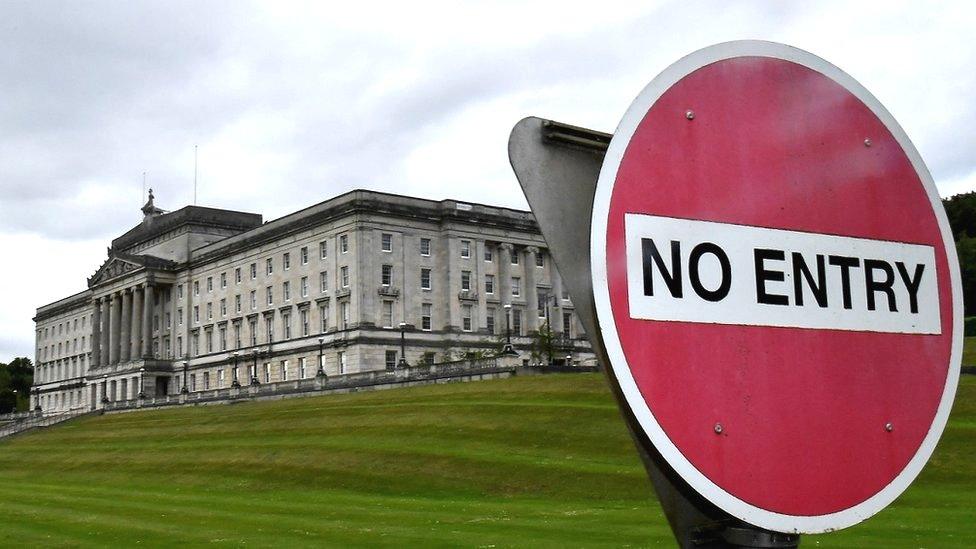
- Published11 January 2024
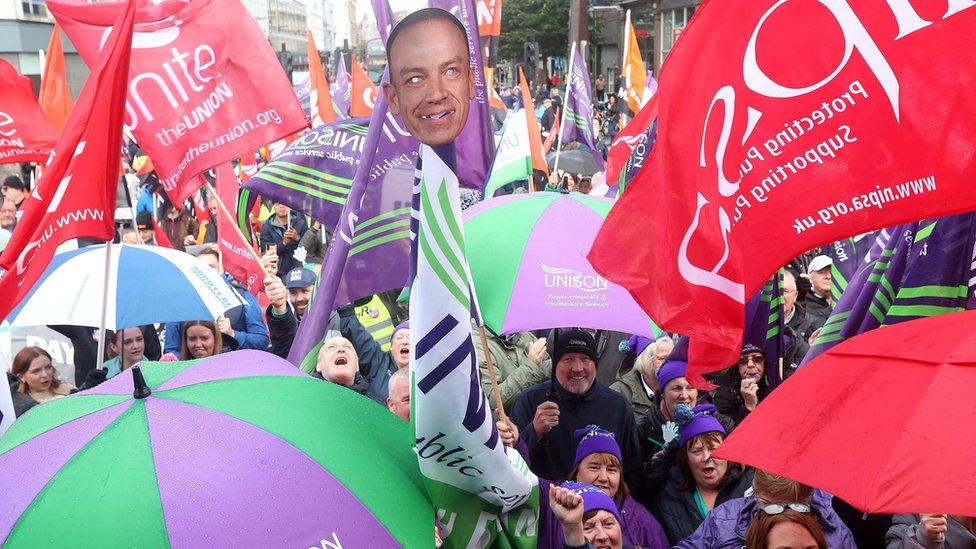
- Published14 January 2024
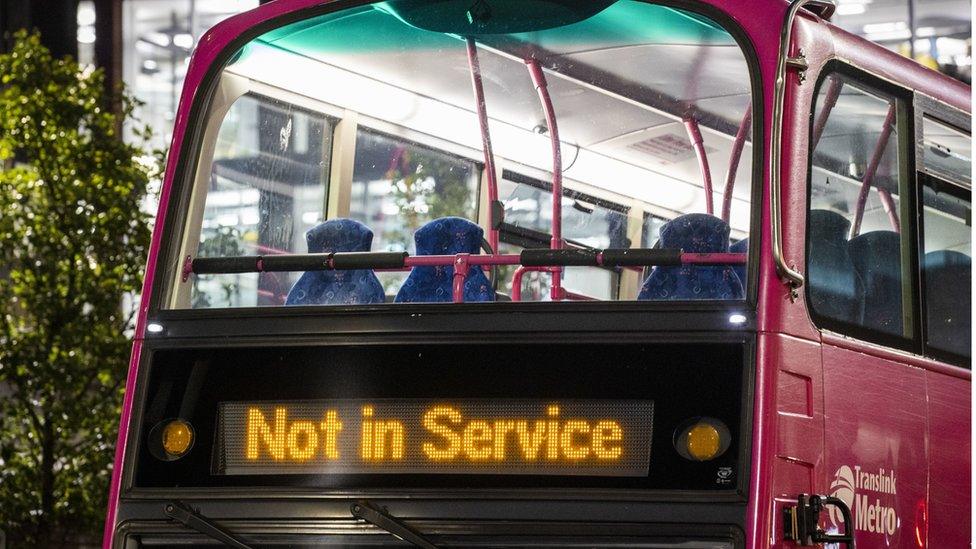
- Published12 January 2024
